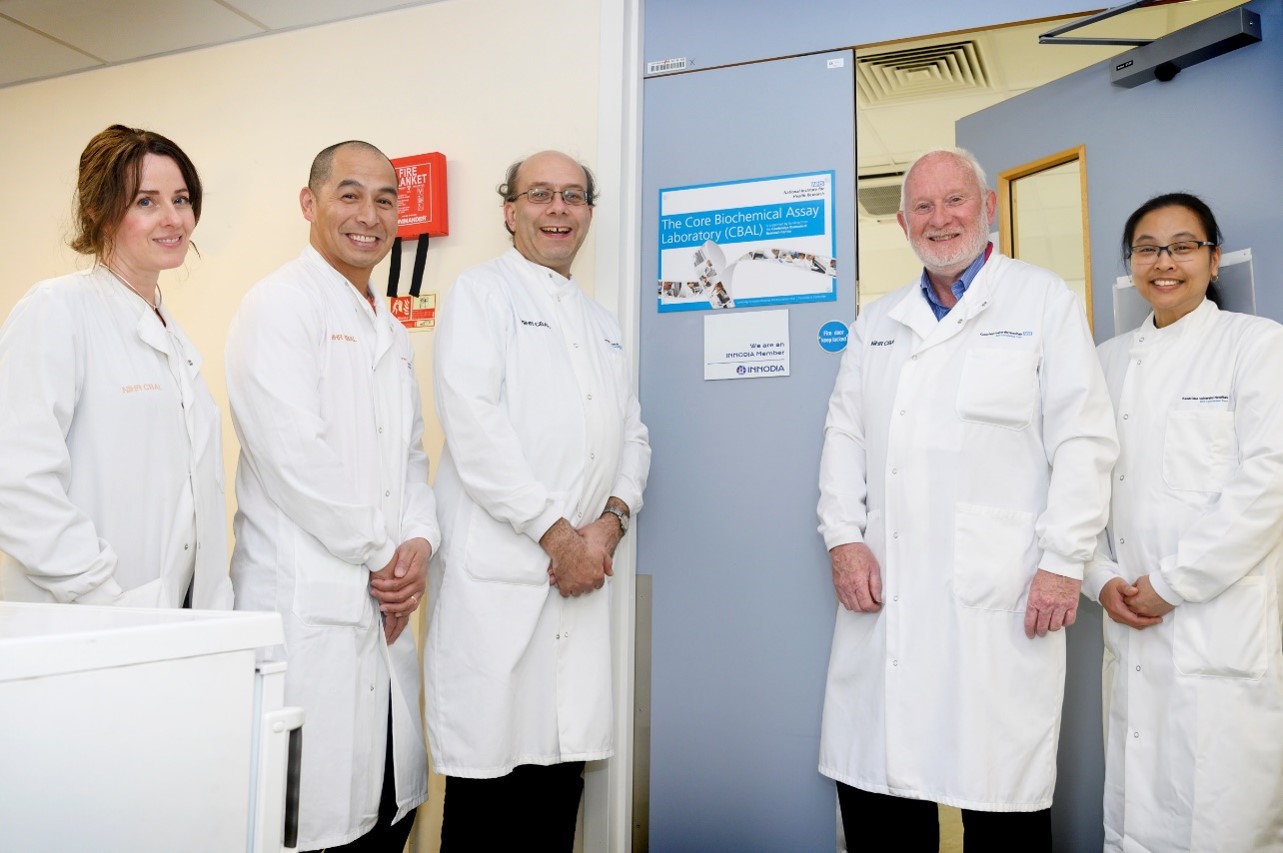CBAL offers a range of biochemical analysis. It’s specialises in providing a wide range of commercially available and in-house developed immunoassays. It has been in existence since 2008 and offers analyses to members of the MRC Metabolic Diseases Unit, IMS-Metabolic Research Laboratories, CBRC researchers and others both nationally and locally.
Mission statement:
- Provide a high-quality sample analysis service.
- Develop and optimise novel immunoassays as required.
- Provide a timely and cost-effective service.
CBAL uses a variety of chemistry and immunoassay platforms to provide single and multiplex measurements of a range of biomarkers in human and non-human biological fluids and cell cultures. It uses a range of equipment from both clinical and research portfolios to provide a repertoire of assays using small sample volumes.
CBAL is responsive to researchers’ requirements and will advise on the feasibility of using commercially available diagnostic kits as well as develop bespoke in-house methods and novel applications.
By using the experienced staff in the unit, the aim is to accommodate all types of research investigations from quick “proof of concept” studies through to longitudinal clinical trials.
Facilities and Equipment
CBAL only offers a complete analytical service. and due to the nature of our equipment these are not available for use directly by researchers.
Equipment used within CBAL includes:
- Siemens Dimension ExL
- Randox Daytona +
- Diasorin Liaison XL
- MesoScale Discovery Sector s600
- PerkinElmer AutoDELFIA
- PerkinElmer Victor-3 Plate Reader
- BioRad Luminex Magpix
- Tecan EVO-100 Automated Liquid Handling Robot
- PerkinElmer Dried Spot Puncher
Pricing
Prices depend on study type, test repertoire and workload volume.
Prices range from £2 per test per sample for some basic biochemistry to £200 per sample for a non-human multiplex pituitary hormone panel.
Each study is individually priced based on a number of factors including the assays required and number of samples.
Achievements
Typically CBAL (and CBAL staff) have co-authorship or acknowledgments on 10+ high impact scientific publications each year.
Development of an in-house dried blood spot C-peptide assay which has subsequently been used in a large European wide study.
Highlight publication
Yanislava Karusheva, Matthew Ratcliff, Alexander Mörseburg, Peter Barker, Audrey Melvin, Naveed Sattar, Keith Burling, Anna Backmark, Robert Roth, Lutz Jermutus, Esther Guiu-Jurado, Matthias Blüher, Paul Welsh, Marko Hyvönen, Stephen O’Rahilly. The Common H202D Variant in GDF-15 Does Not Affect Its Bioactivity but Can Significantly Interfere with Measurement of Its Circulating Levels. The Journal of Applied Laboratory Medicine, Volume 7, Issue 6, November 2022, Pages 1388–1400.
This very important paper shows that GDF-15 measurements made using antibodies supplied in R&D Systems kits significantly under-recover a commonly found variant of the biomarker. This cast doubts on the findings from many published papers where analysis has been performed with R&D kits.


